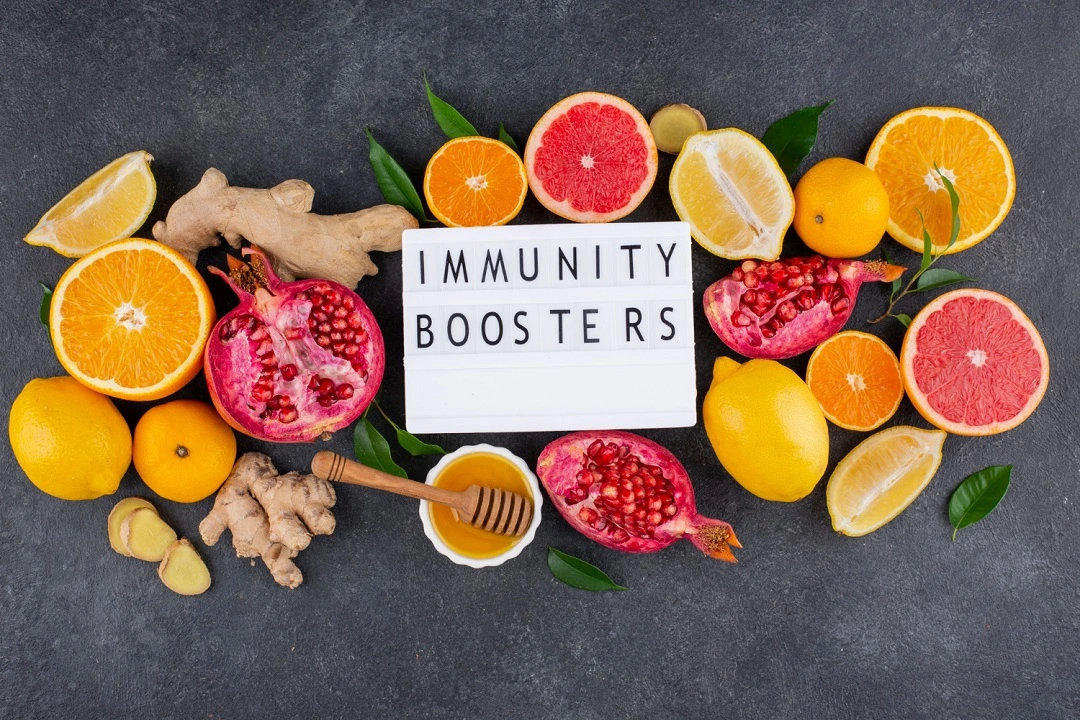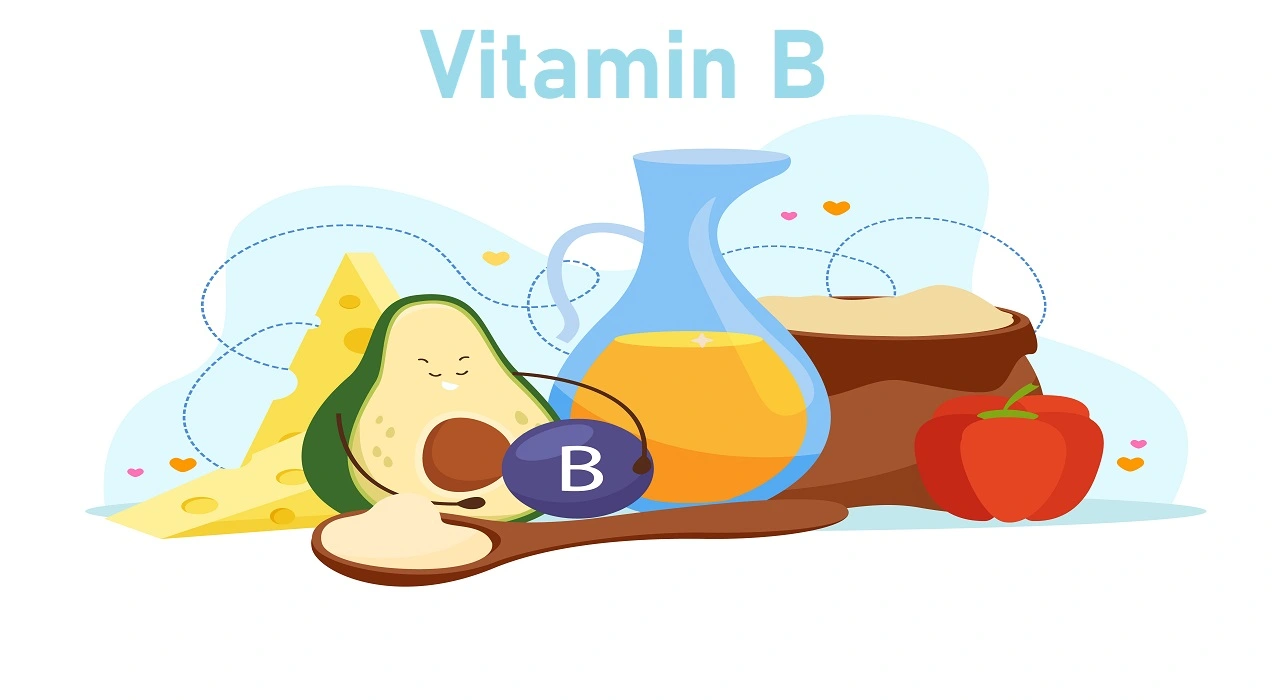Introduction
When it comes to maintaining good health and energy levels, Vitamin B plays a crucial role. This group of essential nutrients is vital for various bodily functions, including energy production, brain function, and cell metabolism. In this blog post, we will explore the different types of B Vitamin, their benefits, sources, and answer some frequently asked questions. Let’s dive into the world of B Vitamin and discover why it’s so important for your overall well-being.

What is Vitamin B?
Vitamin B refers to a group of water-soluble vitamins that play important roles in cell metabolism. Unlike fat-soluble vitamins, water-soluble vitamins are not stored in the body and need to be replenished regularly through diet. There are eight different B vitamins, each with unique functions:
- B1 (Thiamine) – Essential for energy production and nerve function.
- B2 (Riboflavin) – Helps in energy production and acts as an antioxidant.
- B3 (Niacin) – Important for digestive health, skin health, and converting food into energy.
- B5 (Pantothenic Acid) – Crucial for synthesizing coenzyme A, necessary for fatty acid metabolism.
- B6 (Pyridoxine) – Involved in amino acid metabolism, red blood cell production, and neurotransmitter synthesis.
- B7 (Biotin) – Supports healthy hair, skin, and nails, and helps in carbohydrate and fat metabolism.
- B9 (Folate/Folic Acid) – Necessary for DNA synthesis, cell division, and fetal development.
- B12 (Cobalamin) – Important for nerve function, red blood cell production, and DNA synthesis.
The Benefits of Vitamin B
1. Energy Production
B vitamins, particularly B1, B2, B3, B5, B6, and B7, play a significant role in converting the food you eat into energy. They help metabolize carbohydrates, fats, and proteins, ensuring that your body has a steady supply of energy throughout the day.
2. Brain Health
Vitamins B6, B9, and B12 are crucial for brain function and mental health. They help in the production of neurotransmitters, which are chemicals that transmit signals in the brain. Adequate levels of these vitamins can improve mood, cognitive function, and reduce the risk of neurodegenerative diseases.
3. Red Blood Cell Formation
Vitamins B6, B9, and B12 are essential for the production and maintenance of healthy red blood cells. These cells transport oxygen throughout your body, ensuring that your tissues and organs function properly.
4. Skin, Hair, and Nail Health
Biotin (B7) is well-known for its role in maintaining healthy hair, skin, and nails. A deficiency in biotin can lead to brittle nails, hair loss, and skin rashes.
5. Fetal Development
Folate (B9) is critical during pregnancy for proper fetal development. It helps in the formation of the neural tube and prevents birth defects such as spina bifida.
Sources of Vitamin B
To ensure you get enough Vitamin B, it’s important to include a variety of B-rich foods in your diet. Here are some excellent sources for each type of Vitamin B:
- B1: Whole grains, pork, sunflower seeds, and legumes.
- B2: Milk, eggs, almonds, and leafy green vegetables.
- B3: Meat, fish, poultry, fortified cereals, and peanuts.
- B5: Avocados, sweet potatoes, mushrooms, and yogurt.
- B6: Fish, beef liver, potatoes, and non-citrus fruits.
- B7: Eggs, nuts, seeds, and salmon.
- B9: Leafy greens, citrus fruits, beans, and fortified grains.
- B12: Meat, fish, dairy products, and fortified plant-based milk.
FAQs about Vitamin B
Q1. How do I know if I have a Vitamin B deficiency?
Common symptoms of B Vitamin deficiency include fatigue, weakness, anemia, skin rashes, hair loss, and cognitive issues. If you suspect a deficiency, consult a healthcare professional for a proper diagnosis and treatment plan.
Q2. Can I take a Vitamin B supplement?
Yes, Vitamin B supplements are available and can be beneficial, especially for those with dietary restrictions or specific health conditions. However, it’s best to consult with a healthcare provider before starting any supplement regimen.
Q3. Are there any risks associated with taking too much Vitamin B?
While B vitamins are water-soluble and excess amounts are usually excreted in urine, taking very high doses of certain B vitamins can cause adverse effects. For example, too much B6 can lead to nerve damage, and excessive B3 can cause liver toxicity. Always follow the recommended dosage.
Q4. Can Vitamin B boost my energy levels?
Yes, B vitamins help convert the food you eat into energy. They are essential for maintaining optimal energy levels, reducing fatigue, and improving overall vitality.
Q5. How can I ensure I’m getting enough Vitamin B from my diet?
Incorporate a variety of B-rich foods into your meals, such as whole grains, lean meats, dairy, eggs, and leafy greens. A balanced and varied diet is key to meeting your nutritional needs.
Vitamin B is an essential nutrient that supports numerous bodily functions, from energy production to brain health. By understanding the importance of each B vitamin and incorporating a variety of rich foods into your diet, you can ensure that your body receives the nutrients it needs to thrive. Remember to consult with a healthcare provider if you have any concerns about your Vitamin levels or if you’re considering supplements. Stay healthy and energized by making Vitamin a vital part of your daily routine.

